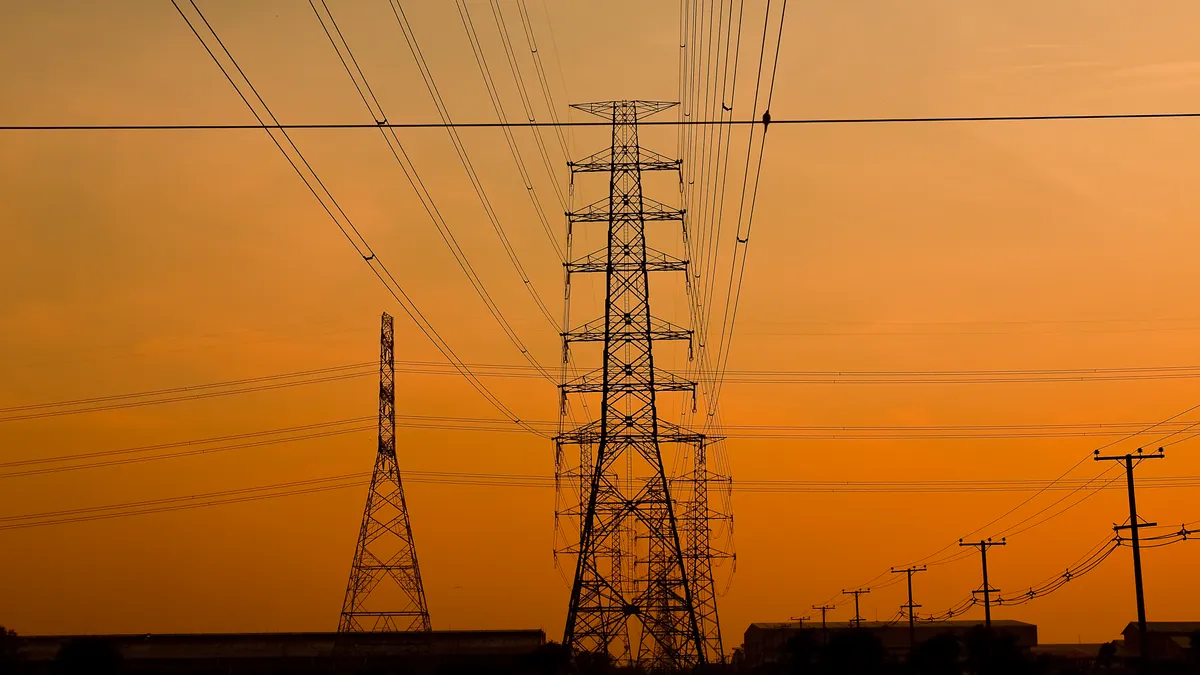Dive Brief:
-
A coalition of consumer advocates, pro-market groups and others is calling on Congress to direct an independent agency to conduct a first-of-its-kind cost analysis on organized power markets in the U.S.
-
The letter, sent Thursday, was spearheaded by the Electricity Consumers Resource Council (ELCON) and includes a wide array of groups including Public Citizen, Energy Choice Coalition, R Street Institute, state-level consumer advocates and others. It asks Congress to direct the Government Accountability Office (GAO) to conduct a detailed cost analysis of organized markets that are under the Federal Energy Regulatory Commission's jurisdiction.
-
The effort comes in the midst of rising debate in traditionally regulated, vertically integrated utility regions about whether forming or joining a regional transmission organization (RTO) could save customers money and accelerate the transition to clean energy.
Dive Insight:
In 1999, FERC encouraged voluntary participation in the organized markets through its Order 2000, and since then restructuring has accelerated across the U.S. Though markets were restructured in the early 2000s and some studies have pointed to benefits of that movement, a comprehensive cost analysis of the organized markets has never been done.
RTOs now govern about two-thirds of U.S. power markets, and last month nine former FERC commissioners and chairs called for the commission to expand organized markets across the country, placing the remaining traditionally regulated, vertically integrated markets — in the Southeast and West — under RTO jurisdiction. Momentum to expand organized markets has grown in Congress as well: Under the House of Representatives' Clean Future Act, all public utilities would be required to join an RTO or an independent system operator within two years of the bill's enactment.
Others are more skeptical of RTO benefits, or of mandatory expansion efforts. In a June 24 letter, former FERC Commissioner Tony Clark, four former National Association of Regulatory Utility Commissioners presidents, and 13 former state utility regulators wrote in opposition to the 9 former FERC commissioners' letter, arguing that RTO membership should continue to be voluntary. Clark has also critiqued aspects of the current RTO model, and former FERC Commissioner Bernard McNamee has been a vocal opponent of the RTO model in general.
Studies including from the Brattle Group, the RTOs themselves and FERC, have found incremental RTO benefits or potential benefits; but geographical and methodological constraints on such studies have prevented an independent cost analysis of the full RTO footprint, according to some who signed the Thursday letter. Given those limitations, the debate over whether RTOs should expand is made more complicated, groups say.
"It's still FERC policy to encourage RTO formation," said Travis Fisher, president and CEO of ELCON. "And what FERC has said in its orders is basically that RTOs benefit consumers. And I don't challenge that premise; I actually think they do. I just think it's unfortunate that nobody has backed it up with data."
In initially studying RTO formation, FERC estimated organized markets would save billions of dollars in production costs. Other studies have found similar results on the wholesale side, but there hasn't been a study to address the retail side of the equation, said Fisher.
"If the goal really is to benefit end users, to benefit consumers, then the question becomes: What's happening to those wholesale benefits?" he said. "If they're as large as they're estimated to be, then why haven't we seen them lower retail rates over time?"
In 2010, FERC commissioned another study in order to examine the cost-benefit analysis of Entergy and Cleco Power joining the Southwest Power Pool. The study found the utilities joining the market would lead to $1.29 billion in projected net benefits to the region. Former FERC Chair Jon Wellinghoff, who is part of the coalition advocating for RTO expansion across the country, has said that a similar study conducted across the U.S. "would be very powerful and compelling evidence."
Other groups who signed on to the letter agreed that while previous studies have been helpful, they haven't given advocates, policymakers and others the full picture.
"The evidence should always drive the policy decision, and there's a need for higher quality evidence to understand how different RTO functions and structures affect benefits and costs," said Devin Hartman, director of Energy and Environmental Policy at the R Street Institute in an email. "Better evidence will delineate a more accurate value proposition for states considering joining or forming an RTO, as well as helping regulators and stakeholders prioritize how to improve RTO performance. The most productive forums for weighing RTO expansion have been preceded by prospective net benefits studies."
Consumer advocates attempted to engage with FERC on this issue earlier this year, requesting the commission undertake a similar study.
"When members of this group asked FERC for a meeting on this issue, FERC staff replied that 'the Commission is not inclined at this time to commission that type of broader study,'" a footnote of the letter reads.
Six states are examining or considering examining such a change independently, according to the letter, though efforts in at least one state — North Carolina — are facing resistance from the state's main utility, Duke Energy. The utility's opposition to studying potential RTO benefits in the state is what drove the Carolina Utility Customers Association (CUCA) to sign onto the letter.
Campaigns against conducting a study in the state have been "truly disappointing," said CUCA Executive Director Kevin Martin.
"If we can't get traction in North Carolina, we're asking FERC to step in and say, 'These conversations need to happen.' … We would really like to see an honest study done so that we can all understand what the opportunities are, and what organized markets in the Southeast could do to benefit customers and the utility," he said.
This post has been updated to clarify Clark's stance on RTOs.















